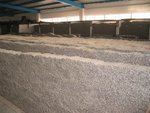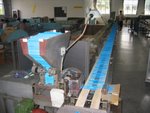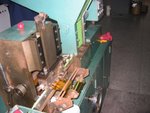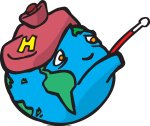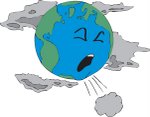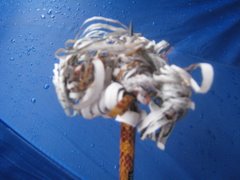Did You Know?
Texans dump enough trash every two weeks to fill the Astrodome.
The 19.2 million tons of Texas municipal solid waste would fill two lanes of IH-10 from Beaumont to El Paso 10 feet high.
The number of cities offering some type of recycling or composting service grew 500% from 40 in 1990 to 250 in 1996.
In the U.S., eight out of ten people are willing to separate household trash for recycling.
The recycling industry accounts for more than 20,000 private-sector jobs in Texas in the processing and end-market facilities adding $2.8 billion to the Texas economy annually.
Recycling waste materials supports about six times as many waste-related jobs as there would be if the same materials were treated as trash.
Glass Recycling Facts
U.S. consumers discard enough glass to fill the 1,350 foot twin towers of New York's World Trade Center every two weeks.
These same consumers recycle approximately 1.25 million tonsof glass annually.
Recycling Facts
Throughout a year, at least 20% of solid waste by Texans comes from grass clippings, tree leaves and other landscape waste.
Yard debris accounts for approximately 31 million tonsof the nation's municipal solid waste.
Aluminum Recycling Facts
American consumers and industry throw away enough aluminum in a year to rebuild our entire airplane commercial fleet every three months.
However, a record 56.85 billion aluminum beverage cans were recycled in the U.S. during 1991 — about 227 cans for every person in the nation.
Recycling one aluminum can saves enough electricity to power a TV or a 100-watt light bulb for three hours.
In 1997, the Recycling Division of the City of Houston Department of Solid Waste Management recycled 20 tons of aluminum cans.
Paper Recycling Facts
The production of a ton of paper requires 17 trees, 7,000 gallons of water and more energy per ton than glass or steel.
Americans dump 180 million tons of garbage annually — more than 40% of which is paper. High-grade printing, copying and writing paper is the largest single component in a landfill.
Every year Americans use more than 67 million tons of paper or 580 pounds per person.
Americans throw away enough office and writing paper annually to build a wall 12 feet high stretching from Los Angeles to New York.
Also, every day American businesses generate enough paper to circle the Earth 20 times.
In addition, every year each American household receives an average of 1.5 tree's growth of bulk mail advertising — commonly known as "junk mail."
In 1997, the Recycling Division of the City of Houston Department of Solid Waste Management recycled 13,600 tons of paper.
Recycling 13,600 tons of paper accounts for the saving of 231,200 trees, 44,880 cubic yards of landfill space and 95,200,000 million gallons of water.
Household Hazardous Waste Facts
The average American household generates 15 pounds of hazardous waste a year. Most of it goes into landfills, sewage treatment plants and septic tanks.
An estimated 1.6 million tons of household hazardous waste exists in the municipal waste stream right now.
The average baby will use about 10,000 diapers before toilet training. An estimated 1 billion trees a year are required to produce disposable diapers.
The U.S. Postal Service delivered approximately 63 billion pieces of third-class mail in 1990. An estimated 5 million trees were used to produce all of 1990s third-class mail. An estimated 10 billion pieces of third-class mail were discarded without being opened.act











